Faculty of Arts
Arts Menu
-
- Communication and Visual Arts
- Major in Public Relations
- Major in Media Studies
- Major in Digital Journalism
- Minors in Communication
- Visual Arts
- Student Success
- Experiential Learning Opportunities
- Media Information Centre
- Our Faculty
- Contact Us
- Environment, Culture and Society
- Literatures, Languages, and Performing Arts
- Philosophy, History and Politics
- Chair's Message
- History
- Degree Options
- Courses
- Student Success
- Awards and Scholarships
- Handbook for History Students
- Introduction - Handbook
- Why Study History?
- Varieties of History
- Historian's Work
- Pros, Amateurs and others
- Careers
- Libraries and Research
- Taking Notes
- Formulating a Topic
- Compiling a Bibliography
- Primary Sources
- Secondary Sources
- Need for Recent Sources
- Where to Start
- Note-taking
- Shape of the Essay
- Style of the Essay
- Checking the Essay
- Documentation
- Bibliographies and Footnotes
- Plagiarism
- Writing Essay Examinations
- Title Pages and Formatting
- Citation Generators
- Examples
- Citation Formatting
- History Links
- Philosophy
- Politics
- Our Faculty
- Contact Us
- Psychology
- Communication and Visual Arts
Section Menu
-
- Communication and Visual Arts
- Major in Public Relations
- Major in Media Studies
- Major in Digital Journalism
- Minors in Communication
- Visual Arts
- Student Success
- Experiential Learning Opportunities
- Media Information Centre
- Our Faculty
- Contact Us
- Environment, Culture and Society
- Literatures, Languages, and Performing Arts
- Philosophy, History and Politics
- Chair's Message
- History
- Degree Options
- Courses
- Student Success
- Awards and Scholarships
- Handbook for History Students
- Introduction - Handbook
- Why Study History?
- Varieties of History
- Historian's Work
- Pros, Amateurs and others
- Careers
- Libraries and Research
- Taking Notes
- Formulating a Topic
- Compiling a Bibliography
- Primary Sources
- Secondary Sources
- Need for Recent Sources
- Where to Start
- Note-taking
- Shape of the Essay
- Style of the Essay
- Checking the Essay
- Documentation
- Bibliographies and Footnotes
- Plagiarism
- Writing Essay Examinations
- Title Pages and Formatting
- Citation Generators
- Examples
- Citation Formatting
- History Links
- Philosophy
- Politics
- Our Faculty
- Contact Us
- Psychology
- Communication and Visual Arts
International Exchanges and Field Trips
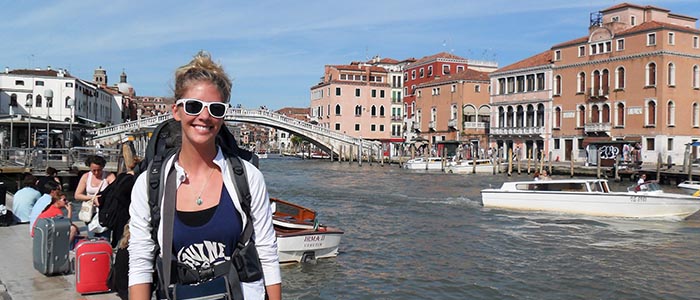
The Faculty of Arts at TRU offers international field trips to Europe and Asia. Students can also apply to participate in world wide study abroad opportunities through TRU World — TRU's International Office. Departments in Arts also offer field trips within Canada as part of their regular programming.
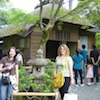
Japan
Alternatively lead by language instructor Cara Cadre or geographer Tom Waldichuk, this field trip provides a great opportunity to study Japan and Japanese first hand.
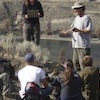
Geography Field School
The physical and human geography field school is an intensive, one week, course that runs in the near desert environment of the lower Thompson River.
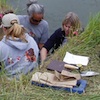
Anthropology Field School
Participate in a dig, learn about First Nations, and earn credits.
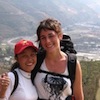
Study Abroad and Exchange Programs
TRU students can participate in a range of education abroad opportunities such as Student Exchange, Field School, Co-operative Education, and for many other learning opportunities.

